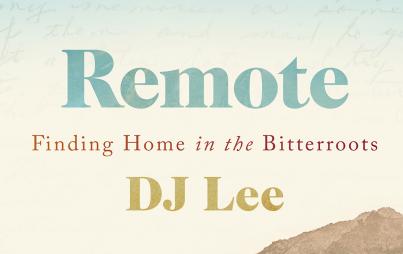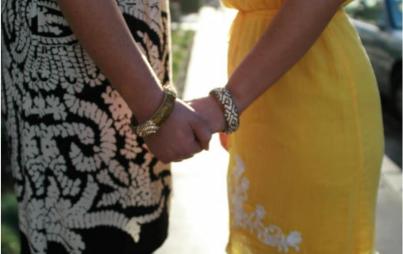
Photo by Cristian Newman on Unsplash
After my mother’s suicide in 2009, I was left with a gnawing sense of guilt. My mother had suffered from an undiagnosed delusional disorder the last sixteen years of her life, marked by episodes where she believed she was being followed and poisoned, episodes where she believed my father was hiding a fortune from her, where she believed vast numbers of people were conspiring against her, including, sometimes, her daughters.
Our family tried to stage an intervention to get her help in the early days of her delusion to no avail — she ran away once she suspected what we had planned. We felt helpless, lost. We didn’t know how best to help her, how best to live with her delusional behavior. We tiptoed on eggshells around her; we held our tongues (or we didn’t — we tried to talk sense into her, which of course never worked). We did a lot of sighing, held a lot of breath. We tried to enjoy moments when she was lucid, being loving, but those moments felt tenuous, chaos lurking just beneath the surface. We kept our distance when we had to for our own well being, but that carried its own kind of guilt.
I’ve wondered over the years if there was something else we could have done — some way we could have helped her — if there was something else I could have said that would have led to a different outcome.
I had been the last person — at least the last member of the family — to talk to her before her suicide. She was in the midst of her worst psychotic break ever. Previously, it was only her family who knew she was delusional because others she came in contact with had seen her as put together, elegant, eloquent; others, including at least two therapists, had believed her stories about my father’s alleged misdeeds. In this final delusional episode, however, she was disheveled, wild-eyed, clearly not tethered to reality. Anyone could have recognized the fact that she was in a delusional state.
During the last days of her life, my mom was the target of a missing person search. When we finally located her, my sister assembled a psychiatric intervention team to meet our mom, our second attempt at intervention in sixteen years. She got suspicious and ran away this time, too — this time in the most permanent way possible.
I reached out to Dr. David Brendel, who practices psychiatry in the Boston area, to see if he had any answers, after learning that he was an expert in delusional disorders. It was too late to help my mother, but perhaps I could find a way to help other people navigate similar situations with loved ones. Dr. Brendel is the author of Healing Psychiatry (MIT Press), a book often used by mental health professionals as a framework for selecting treatment options, and has taught clinical psychiatry and ethics at Harvard Medical School. He holds a Ph.D. in Philosophy from the University of Chicago as well as an MD from Harvard, and offers philosophical counseling through his Leading Minds Executive Coaching practice apart from his clinical psychiatry practice. He graciously agreed to speak with me over the phone.
After I explained my mother’s history, he said “Delusional disorders are extremely hard to treat. Medications usually don’t take away delusion. Some grandiose delusions can diminish some under medication,” he said, “the kind where people think a famous person is in love with them, but in general, delusions can’t be medicated away. And you can’t convince someone their delusions aren’t real.”
A fresh shiver of guilt traveled through me. I know I didn’t do enough to make my mother feel heard. I would often shut her down, shut myself down around her.
I told him I had been beating myself up with the thought that there was something else I could have done, something else I could have said, something that could have made a real difference, which could have saved her life.
“In this case, probably not,” he assured me, and I could feel a knot I had been holding inside my body for years begin to loosen. “It would have taken a stroke of good luck and magical powers.”
I had wanted those magical powers so badly. There were many times I had wished I could sprinkle some magic powder over my mom’s food, wave a wand, do something to make her delusions disappear into a cloud of glitter — poof! —but of course, we never found that particular magic.
You Might Also Like: Looking Like My Mother Is The Closest I'll Ever Be To Her
“So what do you tell families who are going through something like this?” I asked.
“I have to navigate that line with families saying that nothing’s going to help, but still give them some hope, some resources,” he told me. “I have to remind them that debating the truth of the delusion is almost never successful. The question is finding common ground.”
“How?” I asked. Common ground was not always easy to find with my mom. When she was well, we had much in common — a shared love of food, of the arts, of books, of activism — but when she was delusional, sometimes it was hard to access even the love I knew was still between us.
“You need to find something everyone can agree upon,” he said. “You can say things like ‘That sounds just absolutely awful. Wow, that must be so stressful.’ These are true statements — you’re not lying. True statements that can help the person feel heard.”
A fresh shiver of guilt traveled through me. I know I didn’t do enough to make my mother feel heard. I would often shut her down, shut myself down around her. She would regularly say things like “You say you’re a feminist, but you don’t believe your own mother!” I would regularly look away and sigh, not sure what to say.
“With someone like your mom,” he said, “someone who’s worried about money, you could ask her about the money she does have, what she could do to keep it safe through investing or the like. Or if she’s complaining about your father, you could commiserate about a bad marriage. Most people can relate to a bad marriage.”
We both laughed, maybe a bit longer than the conversation warranted, but it felt good.
It felt good to laugh in the midst of talking about this awful stuff, even if we were laughing about other awful stuff.
I felt thankful my marriage was in a good place — it had fallen apart a few years after my mom’s death, and my husband and I had separated for several months, but we had worked things out, worked hard to make our relationship stronger than ever.
“It’s almost like the details don’t matter,” he said, a comment that went against everything I tell my writing students. Details are everything, I tell them; details bring a story to life. In talking to a delusional person, however, details can get in the way.
“Don’t talk about the delusion,” he said. “Talk about the emotion. ‘That sounds so scary and stressful. What can we do to protect you? What can we do to keep you safe? Do you need a safe place to stay?’”
All questions I wish I had had the presence of mind to ask my mom, questions that could have helped to build more of a bridge between us.
Dr. Brendel told me about a friend of his, Dr. Leston Havens, who, inspired by the work of Dr. Elvin Semrad in the 50s and 60s, would engage in what he called “counter-projection” techniques at Boston Psychiatric Hospital. “He suggested not sitting face to face, which is a confrontational stance; instead, you pull up a chair where both people are looking at a scary world together.”
He said that in this “counter-projection” technique, you do bring up the details, but you make them even more extreme than they are in the person’s delusion. “If someone thinks police are outside wiretapping them, ask ‘What about the FBI? Do you think the FBI is involved?’ They might say ‘Doc, you’re crazy!’ This can help test the limits of the delusions. Is it Martians?”
If I had done that with my mom, it would not have gone well—she would surely have accused me of mocking her—but perhaps it works well in some clinical settings. I do wish I had taken more time to sit side by side with her, to look out at the world together, instead of confronting her head on, instead of turning away.
I spent more time berating myself for not getting it right than I did being gentle and understanding with myself as I grappled with my mom’s mental illness.
“It’s not an uncommon scenario, dealing with a delusional person,” he said. “At least 1% of the population has schizophrenia, and a higher percentage has psychotic thinking or behavior, so there’s a small but significant portion of the population living with psychosis, and that includes family, friends, neighbors, coworkers, employers, all trying to figure out how to deal with it. Many people across society are affected. It’s extremely difficult to know what to do."
Extremely difficult, indeed. And far more common than I had ever realized. I put out a call on Facebook to see if anyone wanted to talk with me about their experience dealing with delusional loved ones and was flooded with more messages than I could respond to. These messages held common threads of needing to walk away at times from a delusional loved one to protect one’s own wellbeing or even one’s own physical safety. They also held common threads of guilt. So much guilt amongst those of us dealing with delusional loved ones.
Dr. Brendel understood this completely. “It’s important to relieve families of their guilt,” he said. “It’s like terminal cancer, where nothing can be done. The best thing we can do is find a way to safely engage their loved one in something to find common ground.”
And we need to take care of ourselves as we deal with our loved one’s delusions, something I was never very good at doing, myself. I spent more time berating myself for not getting it right than I did being gentle and understanding with myself as I grappled with my mom’s mental illness.
One person who reached out after I made the call on Facebook was E. B. Wexler, a licensed clinical social worker. She wrote “I have several recommendations that I've made over the years to families. The first one is self-care. There's a wonderful organization called the National Alliance on Mental Illness [nami.org]. It is a national organization with chapters in almost every locale. They are the largest grassroots organization for persons affected by mental illness and their families. And much of their work is done in supporting families. They are a lifeline for so many people who have a family member or loved one with severe and persistent mental illness. They have educational groups, support groups, advocacy, and community education programs. The second recommendation I always make it's for the family member themselves to seek support, in the form of professional counseling if that is helpful. We need to recognize that the family member of someone with severe mental illness may need just as much support as the person with the illness.”
I wish I had done a better job of this kind of self-care while my mother was alive.
I also wish I had been more patient with my mom, more compassionate, that I had worked harder to find common ground. I doubt I’ll ever fully be able to shake all the guilt from my bones, but speaking with Dr. Brendel did help lift it significantly, did help me understand there wasn't some magic solution I had overlooked.
It helped to hear from friends, too, to learn how friends are able to find means of self-care even as they still struggle with guilt and confusion and heartache as they deal with delusional loved ones.
One friend with several delusional relatives wrote: “I write, paint, draw, play guitar, sing, and surround myself with people who are kind and have good boundaries. My greatest struggle has been feeling abandoned (like an orphan) and feeling guilty for not allowing them space to hurt me.”
I want my words here to be like that folded note for anyone who needs it, to tell you. This is not your fault. Don’t flay yourself with guilt. Please do what you can to take care of yourself. Please know you are not alone.
Another friend, who has a grown delusional son, wrote “To protect myself, I go to therapy. I keep the lines of communication open with his father. And I've read extensively about his condition. One of the most helpful books is Stop Walking On Eggshells. I also do what I can to alleviate my anxiety about him — for instance, I have a trust set up for him because I worry so much about what will happen to him after I pass away. Right now, he isn't speaking to me (this happens once in awhile). To keep communication open with him I send him a card about once every three or four weeks. I keep it short. Tell him I love him and am thinking about him and hope he is well.”
A friend with a delusional sister writes “I’ve learned, with the help of a really smart psychiatrist, that I have to stop trying to fix my sister, that helping her makes things worse for her, that I have to just let it go. My sister knows that I love her — or at least I have told her so. She knows I will do anything to help. And I am dead to her, and it breaks my heart.”
So many of us are dealing with such similar pain, with this very particular form of helplessness. Being able to see each other in our struggle helps.
About a year after my mom’s death, I taught an intensive novel-writing Master Class over several days. It was a wonderful class, with fantastic, committed students, but I was still reeling from grief, still on edge from the PTSD that had lingered after my mom’s death, plus I was coming down with what was eventually diagnosed as shingles, surely exacerbated by stress. One student recognized my raw state of being and left a folded piece of paper on my desk one day at the end of class.
I opened it to find a simple note: “It was not your fault.”
I hadn’t realized this was just I needed to hear until I read the words and I cried and cried in the empty classroom, the most cathartic, necessary, healing cry. While this note was about suicide, it works for delusion, too. I want my words here to be like that folded note for anyone who needs it, to tell you. This is not your fault. Don’t flay yourself with guilt. Please do what you can to take care of yourself. Please know you are not alone.
Gayle Brandeis is the author of The Art of Misdiagnosis: Surviving My Mother’s Suicide (Beacon Press)








